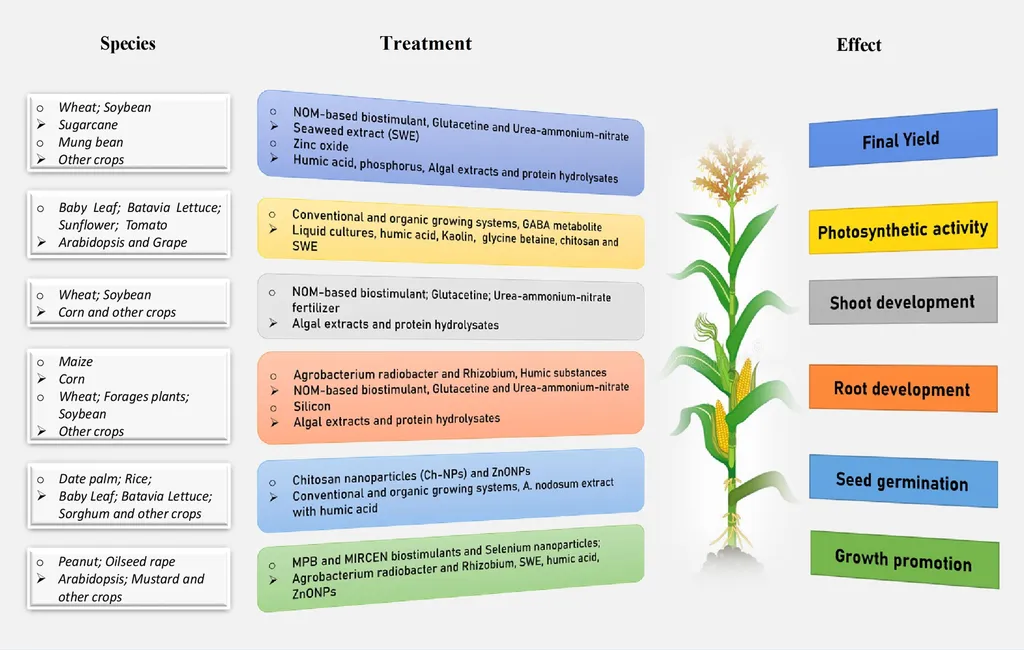In the quest for sustainable agriculture, researchers have turned to the ocean for innovative solutions. A recent meta-analysis published in *Plant-Environment Interactions* reveals that seaweed extracts could hold the key to improving cereal crops’ resilience against salinity stress, a significant challenge for global food security. The study, led by Md. Nuruzzaman from Kongju National University in South Korea, suggests that these marine algae extracts could offer a sustainable and effective way to enhance crop tolerance to salt stress, potentially revolutionizing agricultural practices.
Salinity stress affects crop yield and food security worldwide, particularly in arid and semi-arid regions where soil salinity is a major concern. The study analyzed numerous research papers to determine the impact of seaweed extracts on cereal crops under salinity stress conditions. The findings are promising: aqueous seaweed extracts significantly improved both shoot and root biomass in cereal crops, even under high salinity conditions.
“Our meta-analysis demonstrated that applying aqueous seaweed extracts enhanced the shoot and root biomass under normal and salinity stress conditions,” Nuruzzaman explained. “This suggests that seaweed extract can help improve crop stress tolerance, offering a sustainable solution for farmers.”
The study focused on three classes of seaweeds: Phaeophyceae, Rhodophyta, and Chlorophyta. Extracts from Chlorophyta and Phaeophyceae were particularly effective in enhancing biomass production under salinity conditions. The researchers also found that applying aqueous seaweed extracts at concentrations of 25% or less was most effective for improving salinity tolerance in cereals.
The commercial implications of this research are substantial. As the global population grows and arable land becomes scarcer, the need for sustainable and effective agricultural practices becomes increasingly urgent. Seaweed extracts, which are rich in bioactive compounds, offer a promising alternative to traditional chemical fertilizers and pesticides. They are not only environmentally friendly but also cost-effective, making them an attractive option for farmers looking to improve crop yields while minimizing environmental impact.
“This research opens up new avenues for the agricultural sector,” said Nuruzzaman. “By harnessing the power of seaweed extracts, we can enhance crop resilience and contribute to food security in a sustainable manner.”
The study also highlights the need for further research into the impact of seaweed extracts on cereal crop yields. While the findings are encouraging, more studies are needed to fully understand the potential of seaweed extracts in improving crop productivity and food security.
As the world grapples with the challenges of climate change and food security, innovative solutions like seaweed extracts offer a glimmer of hope. By leveraging the power of marine algae, farmers can enhance crop resilience and contribute to a more sustainable future. The research published in *Plant-Environment Interactions* by lead author Md. Nuruzzaman from the Department of Plant Resources at Kongju National University in South Korea, provides a significant step forward in this direction, paving the way for a greener and more resilient agricultural sector.

